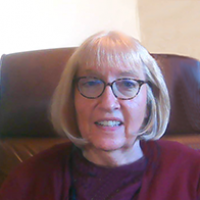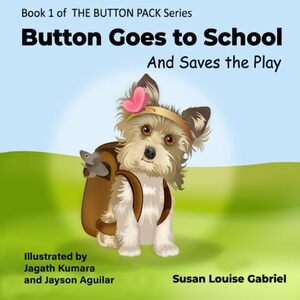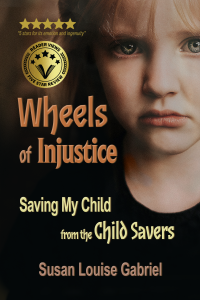Where were you born, and what was your childhood like?
I was born in Loveland, a small town in Northern Colorado that had a population of about 7,000 when I was born. It always felt like Loveland was 20 years “behind the times” when I was growing up. All I wanted to do was leave because it seemed so boring to me—it was like living in a Leave it to Beaver or Father Knows Best episode.
Do you remember the first story you ever read and the impact it had on you?
My earliest book memories are of my mother reading to me. I specifically remember one of my favorite books – A Child’s Garden of Verses by Robert Lewis Stevenson, and two of my favorite poems, “Bed in Summer” and “My Shadow.” Stevenson’s poetry had an impact on my own poetic style. Some of my poetry is included in my memoir, and I’ll be publishing a poetry anthology later this year.
When and how did you decide that you wanted to write?
I don’t remember deciding that I wanted to write. I just wrote—stories and poems and diary entries. (I didn’t write very many thank you notes, however, much to my mother’s chagrin.)
I’ve done technical and proposal writing as part of my career for more than 30 years, but when I decided to write my memoir, I had to find my personal “voice” again after it was obliterated by tech writing rules and style manuals.
Are there any writers in your family? If so, what role have they played in your journey as an author? If not, have any of your children shown an interest in it?
One of my mother’s cousin’s wrote a book called Pioneer Epic, which was published in 1951 and was a biography about one of my semi-famous relatives. I used to love to read it as a child.
Both my daughters are employed as proposal writers.
My granddaughter wrote a book (fantasy) and published it on Amazon in 2015 when she was 15. My granddaughter’s courage in writing and publishing a book as a teen was inspiring to me.
What is a childhood ambition that you had?
I had so many ambitions as a child, there isn’t room to name them all. They ran the gamut from artist, actress, or circus performer to chemist, archeologist, or inventor.
What challenges did you face while writing your memoir, Wheels of Injustice: Saving My Child from the Child Savers?
There were two main challenges: one was technical and the other emotional. I’d been doing technical writing for so long, it was hard to start writing more naturally—using contractions and varying words and sentence structures—things that are no-no’s in tech writing, but when used in a memoir sound stilted and boring. I also had to learn how to write using a story arc for the main plot.
The other challenge was emotional. Whenever I had to write a part that was emotionally difficult for me because of my memories, I had to stop. In fact, I got to one spot and couldn’t go any further for 30 years. I dumped the manuscript and all the court records and documents into a box that I thought had been discarded. But when cleaning the garage one day, I ran across it, surprised that I still had it. I brought it in the house and put it into a drawer. Then it started calling to me “finish me, finish me!” So I dug it out and started working on it again in 2019.
What is better for you: starting a book or finishing it?
Definitely finishing a book, whether reading or writing. I like loose ends being wrapped up.
What are some aspirations you have for your future as an author?
I’m currently narrating an audio book for Wheels of Injustice and have a companion journal for Wheels of Injustice partly completed. I plan to publish a poetry anthology before the end of the year. I’m also preparing some podcast and Christian speaking engagement content called “Part Your Clouds,” a series of steps to connecting with God and allowing His light to come in. Beyond that, I will go where the Lord leads me.
How do you keep yourself motivated?
When I pray and stay close to God, I don’t have a problem with motivation. My problem is energy, so the key is keeping myself energized: eat right, take supplements and vitamins, exercise, and get plenty of sleep.
What are some things you did to understand and perfect the craft of writing?
I learned how to write and edit during my 30 years as a technical writer, so following grammar rules and punctuation and capitalization style guides is something that comes naturally to me now.
I had to find my personal writing voice, however, and that occurred by accident. I take that back. It was definitely orchestrated by God, and I have to give him the credit! It happened when I made friends with someone who lived in another country. We wrote messages back and forth, and the more I wrote, the more I realized that my writing style had gradually shifted to one that was more natural—more like having a conversation than describing how to build a communications module.
What is the most ideal ambiance for you to write in?
I usually wake up around 4 am. As I lie in bed after waking, I let my mind wander, and a few lines of poetry or a topic to write about forms in my mind. If I get up at that point and start writing, I am usually productive and pleased with the results. I like to be in a quiet room alone when I write.
Are you friends with other authors? If so, how have they helped you in your journey as a writer?
I’ve made a few author friends online, and they are very helpful and supportive, giving advice and cheering me on.
How will AllAuthor help you in your book promotion? Would you recommend this to your friends?
I’ve appreciated the book promotion tools, like the book banners, the mockups and gif makers that create professional-looking ads that attract attention. I recommend this site to my friends.




